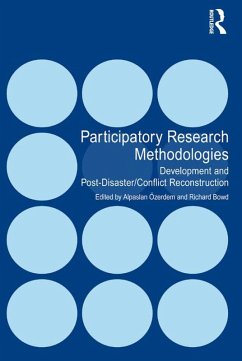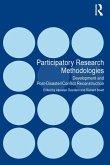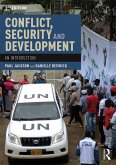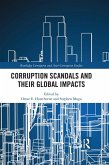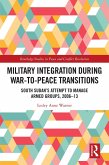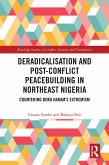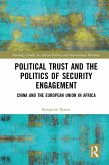Alpaslan Özerdem, Richard Bowd
Participatory Research Methodologies (eBook, PDF)
Development and Post-Disaster/Conflict Reconstruction
54,95 €
54,95 €
inkl. MwSt.
Sofort per Download lieferbar

27 °P sammeln
54,95 €
Als Download kaufen

54,95 €
inkl. MwSt.
Sofort per Download lieferbar

27 °P sammeln
Jetzt verschenken
Alle Infos zum eBook verschenken
54,95 €
inkl. MwSt.
Sofort per Download lieferbar
Alle Infos zum eBook verschenken

27 °P sammeln
Alpaslan Özerdem, Richard Bowd
Participatory Research Methodologies (eBook, PDF)
Development and Post-Disaster/Conflict Reconstruction
- Format: PDF
- Merkliste
- Auf die Merkliste
- Bewerten Bewerten
- Teilen
- Produkt teilen
- Produkterinnerung
- Produkterinnerung

Bitte loggen Sie sich zunächst in Ihr Kundenkonto ein oder registrieren Sie sich bei
bücher.de, um das eBook-Abo tolino select nutzen zu können.
Hier können Sie sich einloggen
Hier können Sie sich einloggen
Sie sind bereits eingeloggt. Klicken Sie auf 2. tolino select Abo, um fortzufahren.

Bitte loggen Sie sich zunächst in Ihr Kundenkonto ein oder registrieren Sie sich bei bücher.de, um das eBook-Abo tolino select nutzen zu können.
This informative text assesses the use of participatory methods as a research tool in the contexts of development and reconstruction after conflict and disasters by identifying cross-cutting themes and establishing a comparative lessons-learned framework. Rather than adopting a prescriptive perspective, the book provides a critical analysis of such methodologies.
- Geräte: PC
- mit Kopierschutz
- eBook Hilfe
- Größe: 3.22MB
Andere Kunden interessierten sich auch für
![Participatory Research Methodologies (eBook, ePUB) Participatory Research Methodologies (eBook, ePUB)]() Alpaslan ÖzerdemParticipatory Research Methodologies (eBook, ePUB)54,95 €
Alpaslan ÖzerdemParticipatory Research Methodologies (eBook, ePUB)54,95 €![Post-Conflict Referendums and Peace Processes (eBook, PDF) Post-Conflict Referendums and Peace Processes (eBook, PDF)]() Kentaro FujikawaPost-Conflict Referendums and Peace Processes (eBook, PDF)42,95 €
Kentaro FujikawaPost-Conflict Referendums and Peace Processes (eBook, PDF)42,95 €![Conflict, Security and Development (eBook, PDF) Conflict, Security and Development (eBook, PDF)]() Paul JacksonConflict, Security and Development (eBook, PDF)42,95 €
Paul JacksonConflict, Security and Development (eBook, PDF)42,95 €![Corruption Scandals and their Global Impacts (eBook, PDF) Corruption Scandals and their Global Impacts (eBook, PDF)]() Corruption Scandals and their Global Impacts (eBook, PDF)45,95 €
Corruption Scandals and their Global Impacts (eBook, PDF)45,95 €![Military Integration during War-to-Peace Transitions (eBook, PDF) Military Integration during War-to-Peace Transitions (eBook, PDF)]() Lesley Anne WarnerMilitary Integration during War-to-Peace Transitions (eBook, PDF)42,95 €
Lesley Anne WarnerMilitary Integration during War-to-Peace Transitions (eBook, PDF)42,95 €![Deradicalisation and Post-Conflict Peacebuilding in Northeast Nigeria (eBook, PDF) Deradicalisation and Post-Conflict Peacebuilding in Northeast Nigeria (eBook, PDF)]() Usman SamboDeradicalisation and Post-Conflict Peacebuilding in Northeast Nigeria (eBook, PDF)42,95 €
Usman SamboDeradicalisation and Post-Conflict Peacebuilding in Northeast Nigeria (eBook, PDF)42,95 €![Political Trust and the Politics of Security Engagement (eBook, PDF) Political Trust and the Politics of Security Engagement (eBook, PDF)]() Benjamin BartonPolitical Trust and the Politics of Security Engagement (eBook, PDF)43,95 €
Benjamin BartonPolitical Trust and the Politics of Security Engagement (eBook, PDF)43,95 €-
-
-
This informative text assesses the use of participatory methods as a research tool in the contexts of development and reconstruction after conflict and disasters by identifying cross-cutting themes and establishing a comparative lessons-learned framework. Rather than adopting a prescriptive perspective, the book provides a critical analysis of such methodologies.
Dieser Download kann aus rechtlichen Gründen nur mit Rechnungsadresse in A, B, BG, CY, CZ, D, DK, EW, E, FIN, F, GR, HR, H, IRL, I, LT, L, LR, M, NL, PL, P, R, S, SLO, SK ausgeliefert werden.
Produktdetails
- Produktdetails
- Verlag: Taylor & Francis eBooks
- Seitenzahl: 298
- Erscheinungstermin: 13. Mai 2016
- Englisch
- ISBN-13: 9781317083801
- Artikelnr.: 45095534
- Verlag: Taylor & Francis eBooks
- Seitenzahl: 298
- Erscheinungstermin: 13. Mai 2016
- Englisch
- ISBN-13: 9781317083801
- Artikelnr.: 45095534
- Herstellerkennzeichnung Die Herstellerinformationen sind derzeit nicht verfügbar.
Dr Alpaslan Ã-zerdem, Professor, Centre for Peace and Reconciliation Studies, The Enterprise Centre, ECG.2, Coventry University Technology Park, Coventry, UK and Richard Bowd, University of York, UK.
1: A Theoretical and Practical Exposition of 'Participatory' Research
Methods; I: Participatory Research Methods in Development and Post-disaster
Reconstruction; 2: Introduction to Part I: Participatory Research Methods
in Development and Post-disaster Reconstruction; 3: Who Speaks For The
Community? Negotiating Agency and Voice in Community-based Research in
Tanzania; 4: Poverty Assessment in Rwanda through Participatory Rural
Appraisal; 5: Participatory Approaches to Impact Assessment: Experiences
from Humanitarian Interventions in Zimbabwe; 6: Applications of
Participatory Research Methods in a Post-disaster Environment: The Case of
Cyclone Sidr, Bangladesh; 7: Rediscovering Traditional Knowledge for
Post-disaster Reconstruction through 'Participatory' Research Methods in
India and Nepal; 8: Conclusion to Part I; II: Participatory Research
Methods in Post-conflict Reconstruction; 9: Introduction to Part II:
Participatory Research Methods in Post-conflict Reconstruction; 10:
Understanding Social Capital and Reconciliation in Rwanda through
Participatory Methods; 11: Door Knocking in Sierra Leone: A Necessity in
Post-conflict Research; 12: Mapping Child Soldiers' Reintegration Outcomes
in Liberia: A Participatory Approach; 13: A Participatory Approach to
Ethnographic Research with Victims of Gross Human Rights Violations:
Studying Families of the Disappeared in Post-conflict Nepal; 14: Unexamined
Lives: A Methodology of Women, Violence and War in Lebanon; 15:
Participatory Research in Programme Evaluation: The Mid-term Evaluation of
the National Solidarity Programme in Afghanistan; 16: Participatory
Research Methods in Post-conflict Reconstruction Study Visits; 17:
Conclusion to Part II; 18: Conclusion: A Comparative Analysis of the Use of
Participatory Research Methods in Development, Post-disaster and
Post-conflict Contexts
Methods; I: Participatory Research Methods in Development and Post-disaster
Reconstruction; 2: Introduction to Part I: Participatory Research Methods
in Development and Post-disaster Reconstruction; 3: Who Speaks For The
Community? Negotiating Agency and Voice in Community-based Research in
Tanzania; 4: Poverty Assessment in Rwanda through Participatory Rural
Appraisal; 5: Participatory Approaches to Impact Assessment: Experiences
from Humanitarian Interventions in Zimbabwe; 6: Applications of
Participatory Research Methods in a Post-disaster Environment: The Case of
Cyclone Sidr, Bangladesh; 7: Rediscovering Traditional Knowledge for
Post-disaster Reconstruction through 'Participatory' Research Methods in
India and Nepal; 8: Conclusion to Part I; II: Participatory Research
Methods in Post-conflict Reconstruction; 9: Introduction to Part II:
Participatory Research Methods in Post-conflict Reconstruction; 10:
Understanding Social Capital and Reconciliation in Rwanda through
Participatory Methods; 11: Door Knocking in Sierra Leone: A Necessity in
Post-conflict Research; 12: Mapping Child Soldiers' Reintegration Outcomes
in Liberia: A Participatory Approach; 13: A Participatory Approach to
Ethnographic Research with Victims of Gross Human Rights Violations:
Studying Families of the Disappeared in Post-conflict Nepal; 14: Unexamined
Lives: A Methodology of Women, Violence and War in Lebanon; 15:
Participatory Research in Programme Evaluation: The Mid-term Evaluation of
the National Solidarity Programme in Afghanistan; 16: Participatory
Research Methods in Post-conflict Reconstruction Study Visits; 17:
Conclusion to Part II; 18: Conclusion: A Comparative Analysis of the Use of
Participatory Research Methods in Development, Post-disaster and
Post-conflict Contexts
1: A Theoretical and Practical Exposition of 'Participatory' Research
Methods; I: Participatory Research Methods in Development and Post-disaster
Reconstruction; 2: Introduction to Part I: Participatory Research Methods
in Development and Post-disaster Reconstruction; 3: Who Speaks For The
Community? Negotiating Agency and Voice in Community-based Research in
Tanzania; 4: Poverty Assessment in Rwanda through Participatory Rural
Appraisal; 5: Participatory Approaches to Impact Assessment: Experiences
from Humanitarian Interventions in Zimbabwe; 6: Applications of
Participatory Research Methods in a Post-disaster Environment: The Case of
Cyclone Sidr, Bangladesh; 7: Rediscovering Traditional Knowledge for
Post-disaster Reconstruction through 'Participatory' Research Methods in
India and Nepal; 8: Conclusion to Part I; II: Participatory Research
Methods in Post-conflict Reconstruction; 9: Introduction to Part II:
Participatory Research Methods in Post-conflict Reconstruction; 10:
Understanding Social Capital and Reconciliation in Rwanda through
Participatory Methods; 11: Door Knocking in Sierra Leone: A Necessity in
Post-conflict Research; 12: Mapping Child Soldiers' Reintegration Outcomes
in Liberia: A Participatory Approach; 13: A Participatory Approach to
Ethnographic Research with Victims of Gross Human Rights Violations:
Studying Families of the Disappeared in Post-conflict Nepal; 14: Unexamined
Lives: A Methodology of Women, Violence and War in Lebanon; 15:
Participatory Research in Programme Evaluation: The Mid-term Evaluation of
the National Solidarity Programme in Afghanistan; 16: Participatory
Research Methods in Post-conflict Reconstruction Study Visits; 17:
Conclusion to Part II; 18: Conclusion: A Comparative Analysis of the Use of
Participatory Research Methods in Development, Post-disaster and
Post-conflict Contexts
Methods; I: Participatory Research Methods in Development and Post-disaster
Reconstruction; 2: Introduction to Part I: Participatory Research Methods
in Development and Post-disaster Reconstruction; 3: Who Speaks For The
Community? Negotiating Agency and Voice in Community-based Research in
Tanzania; 4: Poverty Assessment in Rwanda through Participatory Rural
Appraisal; 5: Participatory Approaches to Impact Assessment: Experiences
from Humanitarian Interventions in Zimbabwe; 6: Applications of
Participatory Research Methods in a Post-disaster Environment: The Case of
Cyclone Sidr, Bangladesh; 7: Rediscovering Traditional Knowledge for
Post-disaster Reconstruction through 'Participatory' Research Methods in
India and Nepal; 8: Conclusion to Part I; II: Participatory Research
Methods in Post-conflict Reconstruction; 9: Introduction to Part II:
Participatory Research Methods in Post-conflict Reconstruction; 10:
Understanding Social Capital and Reconciliation in Rwanda through
Participatory Methods; 11: Door Knocking in Sierra Leone: A Necessity in
Post-conflict Research; 12: Mapping Child Soldiers' Reintegration Outcomes
in Liberia: A Participatory Approach; 13: A Participatory Approach to
Ethnographic Research with Victims of Gross Human Rights Violations:
Studying Families of the Disappeared in Post-conflict Nepal; 14: Unexamined
Lives: A Methodology of Women, Violence and War in Lebanon; 15:
Participatory Research in Programme Evaluation: The Mid-term Evaluation of
the National Solidarity Programme in Afghanistan; 16: Participatory
Research Methods in Post-conflict Reconstruction Study Visits; 17:
Conclusion to Part II; 18: Conclusion: A Comparative Analysis of the Use of
Participatory Research Methods in Development, Post-disaster and
Post-conflict Contexts
